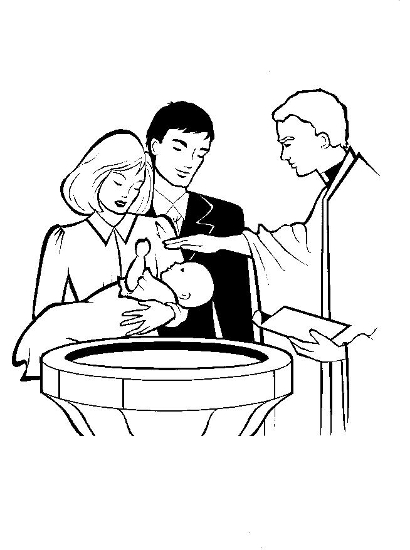Who Should Be Baptized?
© 02.11.18 By David Eric Williams
 A few weeks ago we looked at the reason Jesus was baptized. We noted that Christ received baptism at the hands of John the Baptist as the eschaton Adam. We also discussed the truth that Christians are baptized into a new race of man represented by the last Adam Jesus Christ.
A few weeks ago we looked at the reason Jesus was baptized. We noted that Christ received baptism at the hands of John the Baptist as the eschaton Adam. We also discussed the truth that Christians are baptized into a new race of man represented by the last Adam Jesus Christ.
Baptism represents our union with Jesus Christ. It is a visible sign that having placed faith in Jesus we are washed clean of our sins. It represents our death to the old man and being raised into the new life of Jesus Christ.
But there is more. When we make a confession of faith in Jesus Christ and are baptized we are marked out as priests and kings to God - something we fulfill in the Melchizedek priesthood of Jesus Christ. If we are baptized we come under the obligation of the global mission of the church (Matthew 28:18-20). We are also responsible for our participation in the local church, using the gifts that God has given us to edify our fellow believers (1 Corinthians 12). Moreover, as we have already mentioned, we receive a new family identity. In fact, we become part of the family of God stretching all the way back to Abraham (Galatians 3:27-29). And as a source of peace that passes understanding, eceiving baptism places us under the loving protection and authority of Jesus (Ephesians 5:25-32).
In short, baptism is a sign of our incorporation into the body of Jesus Christ and all the benefits and responsibilities of being his body. You might say that baptism is like a wedding ceremony and after that wedding we are promised by Scripture that Jesus treats us as his own body, nourishing us and cherishing us (Ephesians 5:29).
To illustrate this, the apostle Paul spends a significant amount of time in his letter to the church in Ephesus describing the relationship of a man and his wife. At the end of that discussion he draws on the Genesis account and says that a man should leave his parents and be joined to his wife, with the two becoming one flesh. However, he concludes the entire discourse by saying, "This is a great mystery, but I speak concerning Christ and the church" (Ephesians 5:32). Thus, he tells us that the marriage covenant is an illustration of the relationship between Jesus and his church, his body. Therefore, baptism is ultimately not about us but about Jesus Christ and the covenant relationship he extends to us.
Now, most Bible believing Christians understand that baptism has replaced the rite of circumcision. This makes sense; the grace of God is more expansive in the age of the Son of Man then previously. In the new covenant era the sign of covenant participation is given to all believers, male and female alike. If we understand this it is easy to see why many denominations and churches baptize infants. In the old covenant era the male children of Jews were circumcised because they were included in the promises made to the believing parents; it was presumed they were within the covenant. Likewise, Christians who practice paedobaptism accept the premise that children born to believing parents are regarded as pertaining to the body of Christ. Again, this is to be expected; why in the world would the coming of the Messiah, the one in whom all of God's promises are yes - why would his person and work injure the relationship between God and his people?
We will return to this subject next week.
Entire Site Copyright © 2025 By David Eric Williams










